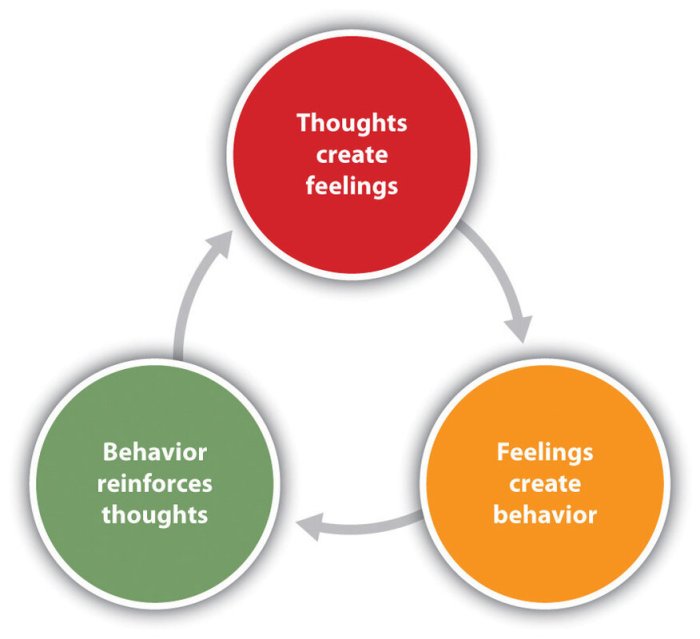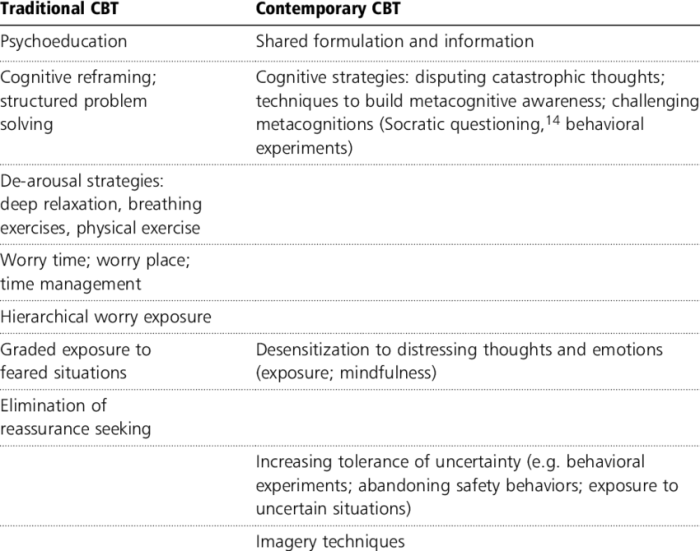Contemporary behavior therapy places emphasis on the present moment, cognitive restructuring, behavioral activation, and the therapeutic relationship. It is an evidence-based approach that has been proven effective in treating a wide range of mental health conditions.
CBT focuses on helping individuals identify and change their negative thought patterns and behaviors. By doing so, they can improve their emotional well-being and overall functioning.
1. Contemporary Behavior Therapy’s Emphasis on the Present Moment

Contemporary Behavior Therapy (CBT) emphasizes the present moment by focusing on current thoughts, feelings, and behaviors. This approach recognizes that our past experiences and future expectations can influence our present, but it is our current actions and reactions that ultimately determine our well-being.
Techniques used in CBT to address present-moment concerns include:
- Mindfulness meditation: Cultivating awareness of the present moment without judgment.
- Thought challenging: Identifying and disputing negative or irrational thoughts.
- Behavioral activation: Engaging in meaningful activities that promote positive emotions and reduce distress.
Focusing on the present moment in therapy offers several benefits:
- Increased self-awareness and emotional regulation.
- Reduced rumination and worry about the past or future.
- Enhanced ability to respond effectively to current challenges.
2. Cognitive Restructuring in Contemporary Behavior Therapy
Cognitive restructuring is a core component of CBT that involves identifying and challenging negative or distorted thought patterns. These patterns can contribute to emotional distress and dysfunctional behaviors.
Techniques for cognitive restructuring include:
- Thought identification: Recognizing the presence of negative or irrational thoughts.
- Thought challenging: Questioning the validity and helpfulness of negative thoughts.
- Cognitive reframing: Developing alternative, more positive ways of interpreting situations.
Cognitive restructuring can significantly impact behavior and emotional well-being:
- Improved mood and reduced anxiety.
- Increased self-esteem and confidence.
- Enhanced problem-solving abilities.
3. Behavioral Activation and Goal Setting in Contemporary Behavior Therapy

Behavioral activation in CBT focuses on increasing engagement in meaningful activities and goal-directed behavior. This approach is based on the idea that activity promotes positive emotions and reduces avoidance and withdrawal.
Principles of behavioral activation include:
- Setting realistic and achievable goals.
- Breaking down large goals into smaller, manageable steps.
- Scheduling activities and monitoring progress.
Engaging in meaningful activities and goal-directed behavior offers several benefits:
- Increased sense of purpose and accomplishment.
- Reduced symptoms of depression and anxiety.
- Enhanced self-efficacy and confidence.
4. The Importance of the Therapeutic Relationship in Contemporary Behavior Therapy

The therapeutic relationship is crucial in CBT as it provides a safe and supportive environment for change. A strong therapeutic alliance facilitates collaboration, open communication, and mutual respect.
Key aspects of a positive therapeutic relationship include:
- Empathy and understanding from the therapist.
- Non-judgmental acceptance of the client.
- Clear communication and shared goals.
Building and maintaining a positive therapeutic relationship can significantly enhance therapy outcomes:
- Increased client engagement and motivation.
- Improved adherence to treatment plans.
- Greater sense of safety and support.
5. Evidence-Based Practices in Contemporary Behavior Therapy: Contemporary Behavior Therapy Places Emphasis On
CBT is supported by a substantial body of research demonstrating its effectiveness for various mental health conditions, including depression, anxiety, and substance abuse.
Evidence-based interventions in CBT include:
- Cognitive Behavioral Therapy for Depression (CBT-D).
- Cognitive Behavioral Therapy for Anxiety Disorders (CBT-A).
- Dialectical Behavior Therapy (DBT).
Using evidence-based interventions ensures that clients receive treatments that have been empirically validated and are likely to produce positive outcomes.
6. Cultural Considerations in Contemporary Behavior Therapy

Cultural sensitivity is essential in CBT as cultural factors can influence the presentation and treatment of mental health concerns.
Key considerations include:
- Understanding the client’s cultural background and values.
- Tailoring interventions to fit cultural norms and expectations.
- Considering the role of cultural factors in symptom presentation and treatment response.
By incorporating cultural considerations, CBT can be more effective and accessible for diverse populations.
General Inquiries
What is contemporary behavior therapy?
Contemporary behavior therapy is an evidence-based approach to psychotherapy that focuses on helping individuals identify and change their negative thought patterns and behaviors.
How does CBT work?
CBT works by helping individuals identify the thoughts and behaviors that are contributing to their problems. Once these thoughts and behaviors have been identified, the therapist will work with the individual to develop strategies for changing them.
What are the benefits of CBT?
CBT has been shown to be effective in treating a wide range of mental health conditions, including anxiety, depression, and eating disorders. CBT can also help individuals improve their relationships, communication skills, and overall functioning.